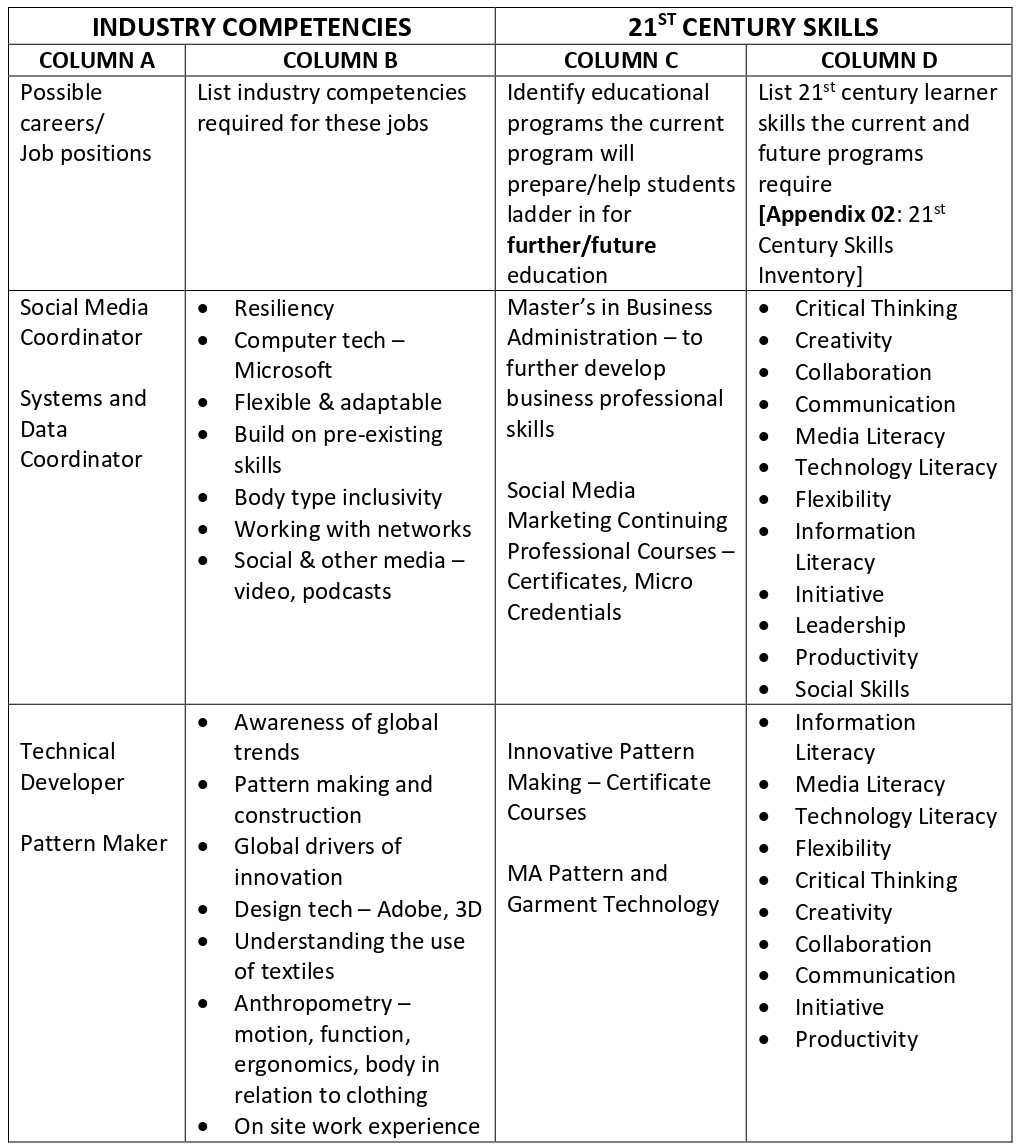3.1 Pathway Mapping
This section of the guide will help program reviewers think about how the intended program fundamentally prepares students to pursue a career/job in a chosen field and/or further their educational goals.
After completing this section, the program review team may determine that they wish to recommend updating the current industry competencies and 21st century skills relevant to job positions students may be qualified for upon completion of the program. This informs your program competencies and outcomes.
See below guiding questions to complete the pathway mapping section.
3.1.1. Who are Your Students?
-
- Identify student segments targeted by this program. Use a specific label to identify each student segment. For example, high school students, returning students from industry etc.
- Develop a brief profile for each student segment you identified above.
3.1.2. How will this Program Prepare Students?
Appendix 1: Pathway Mapping Template
Considering student segments you identified in section 3.1.1., identify
-
- What careers/jobs would this program prepare students for? Then list industry competencies required for students to successfully apply for and execute duties and responsibilities of those jobs.
- What further educational opportunities does this program prepare students for? Identify 21st century skills [Appendix 2 – 21st Century Skills] this program provides students to be effective learners.
Example
See below an example of the pathway mapping process.

Note: Industry competencies (column B) and 21st century skills (column D) listed above should be used to develop/review current program competencies in section 3.2.
3.1.3 Next Steps
Refer to the Self-Study Guide (KPU Program Review Guide Series #4), Chapter 3, section 3.1 (Pathway mapping). Follow the instructions provided in that section.

